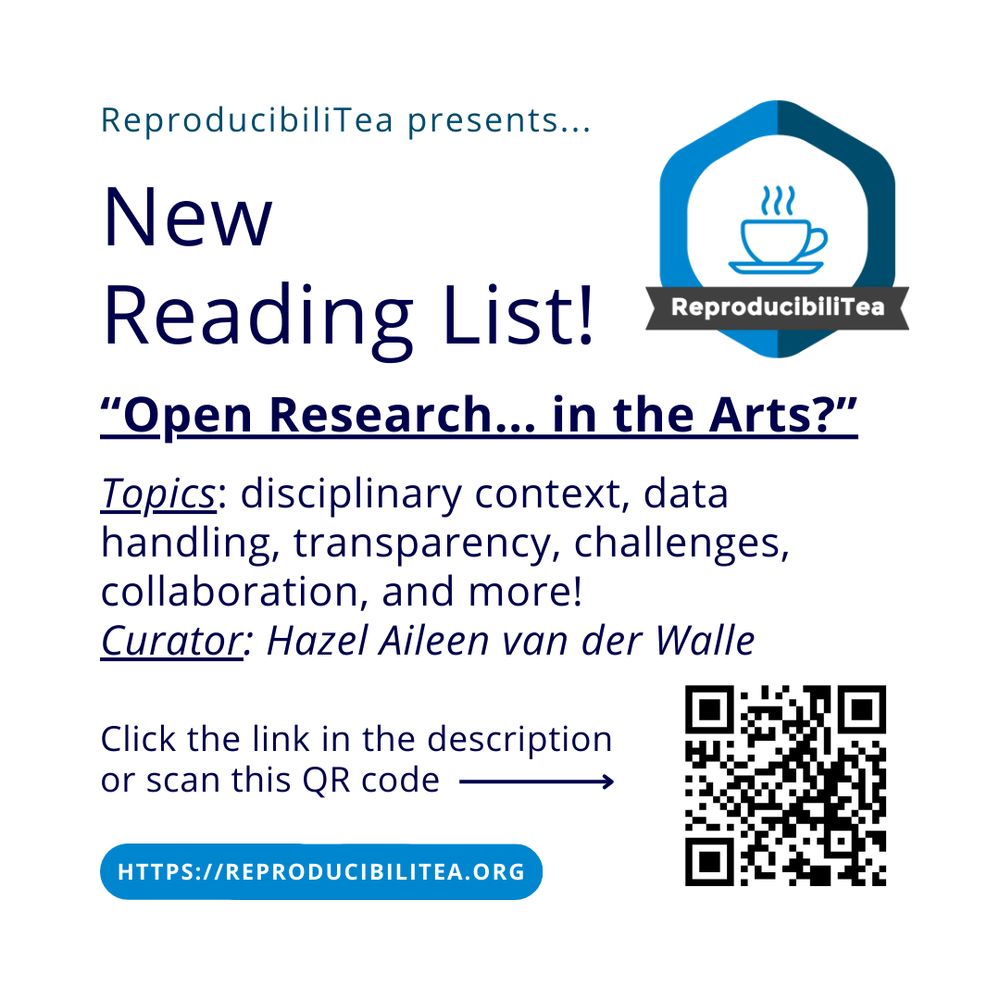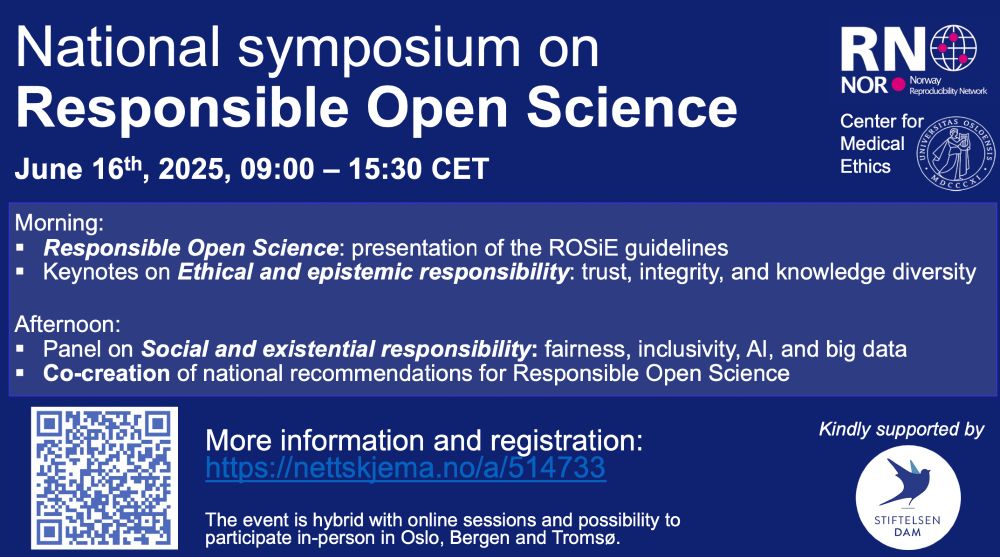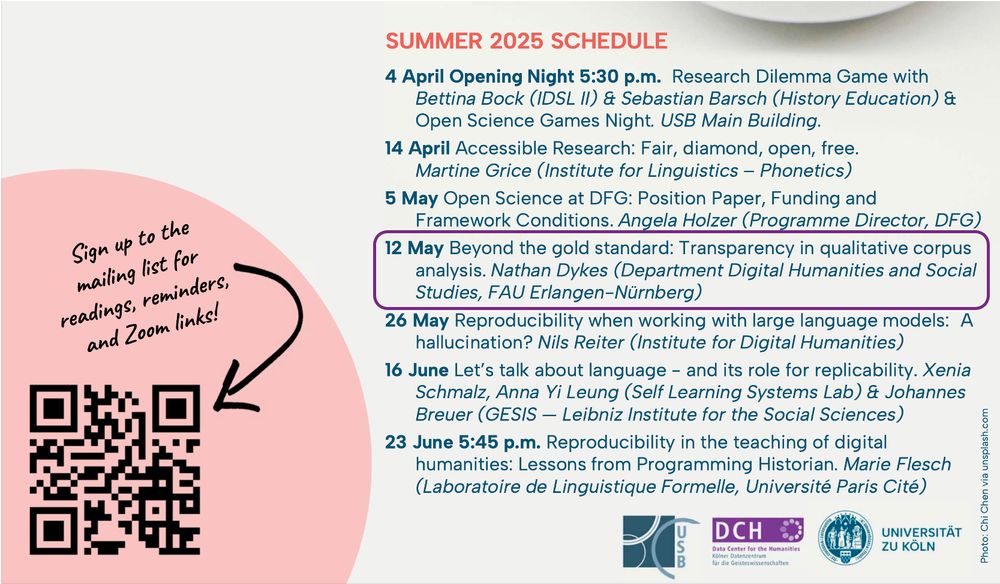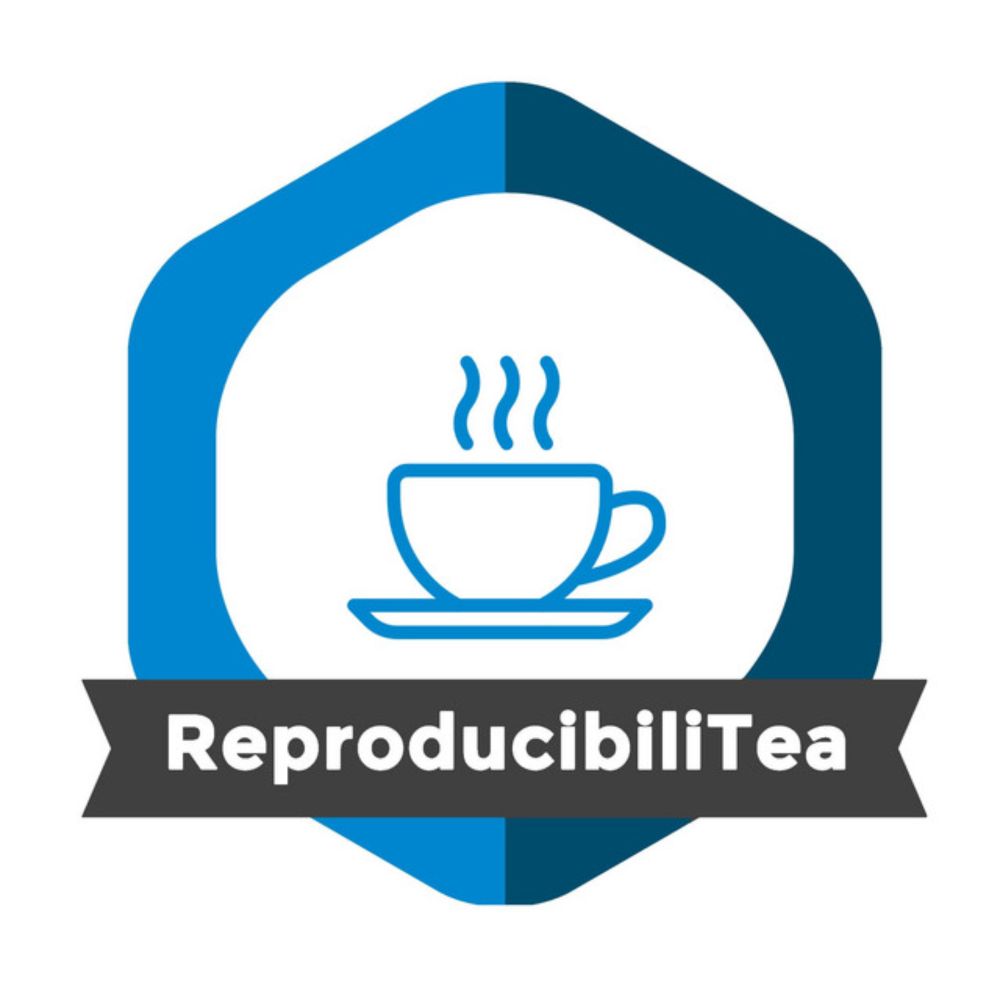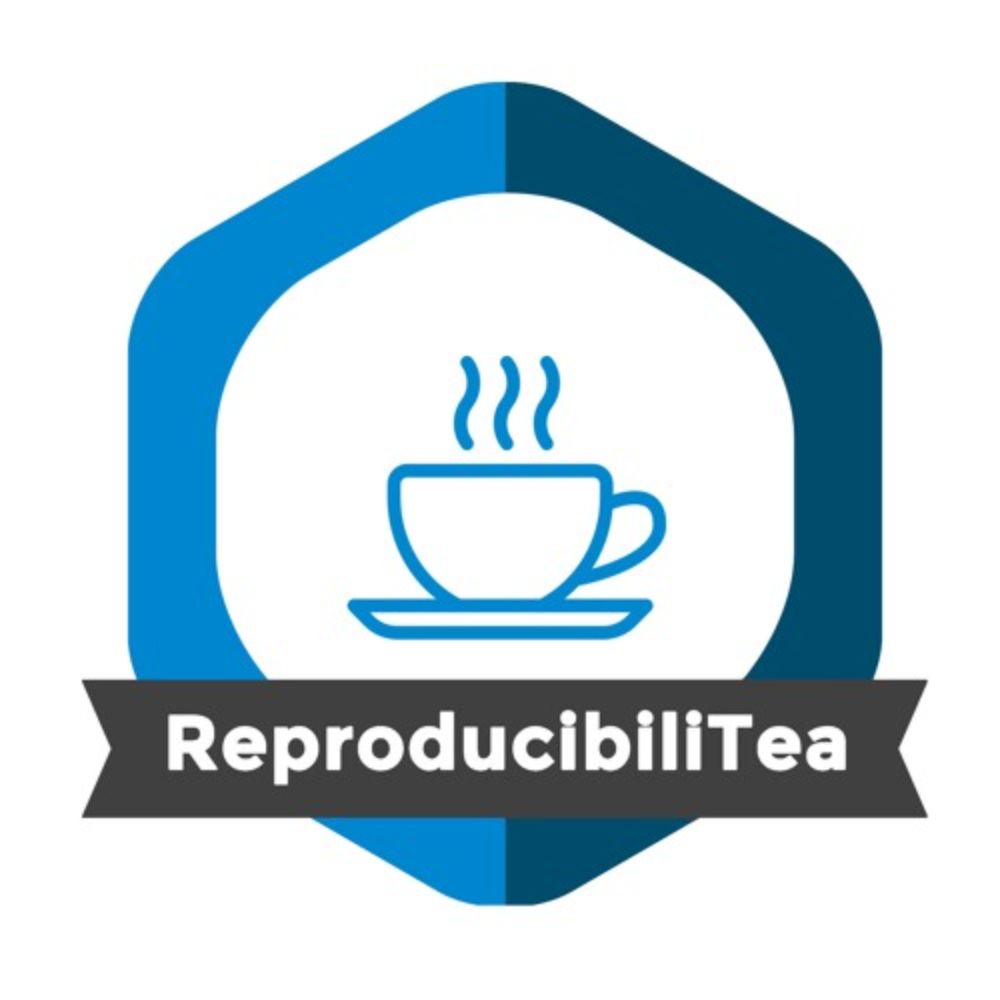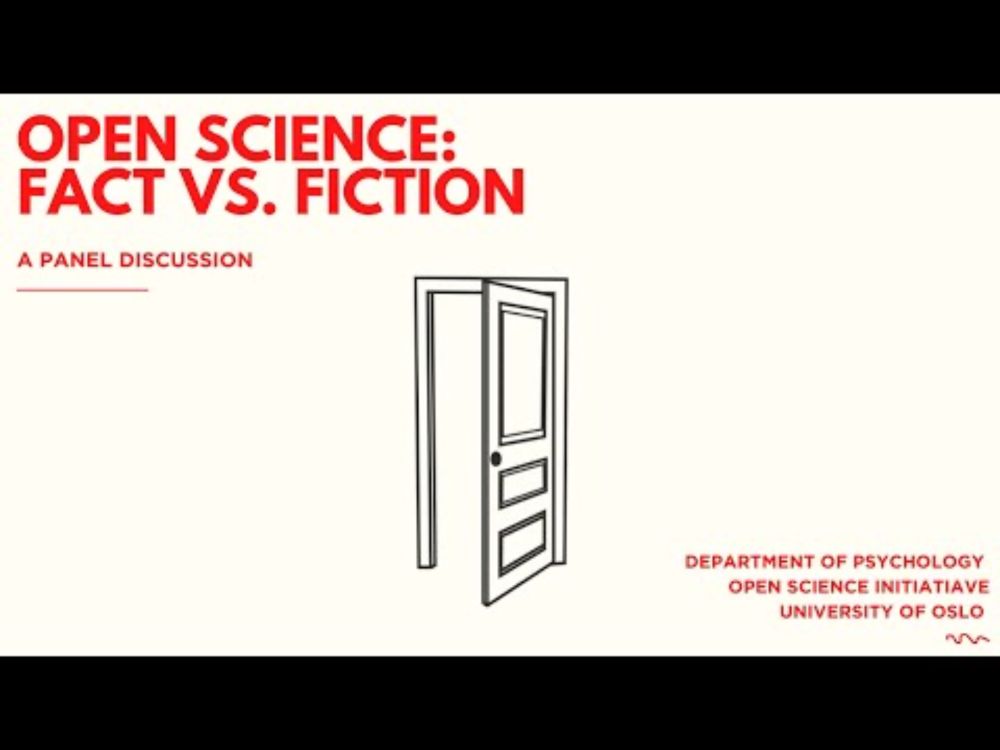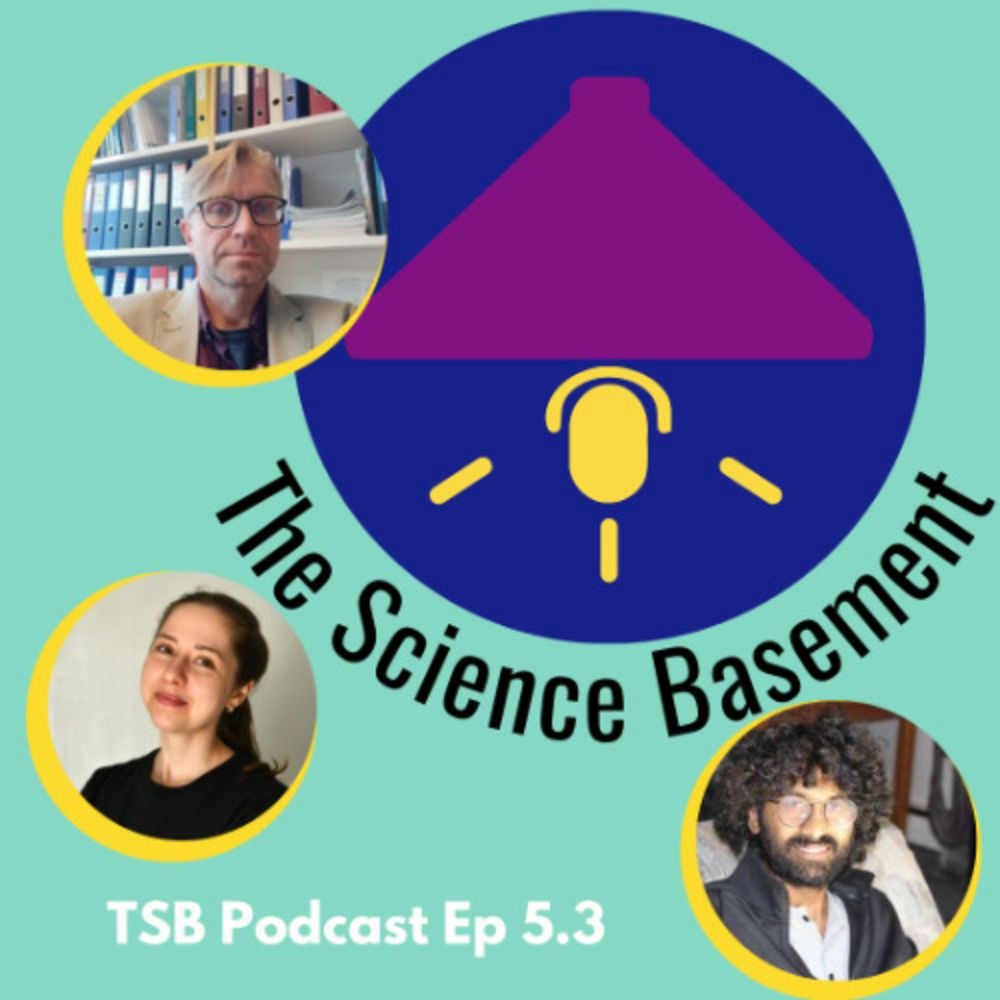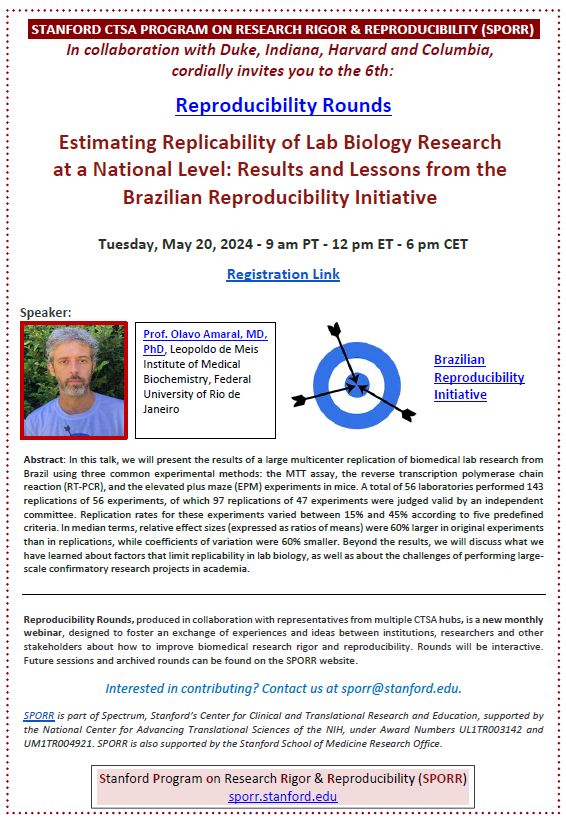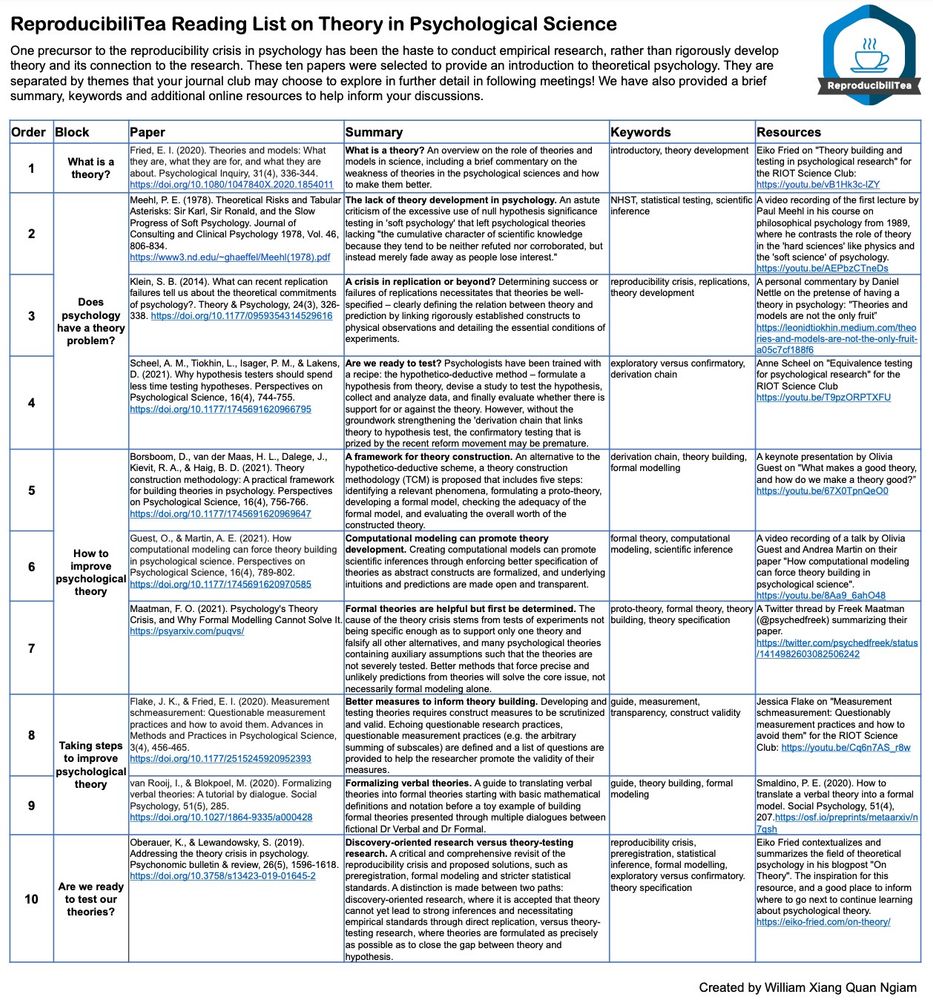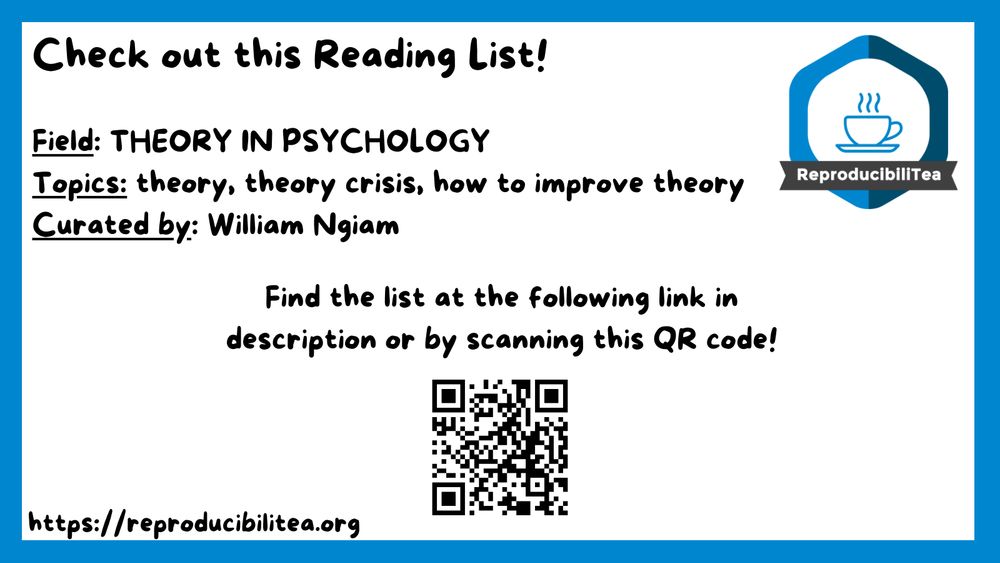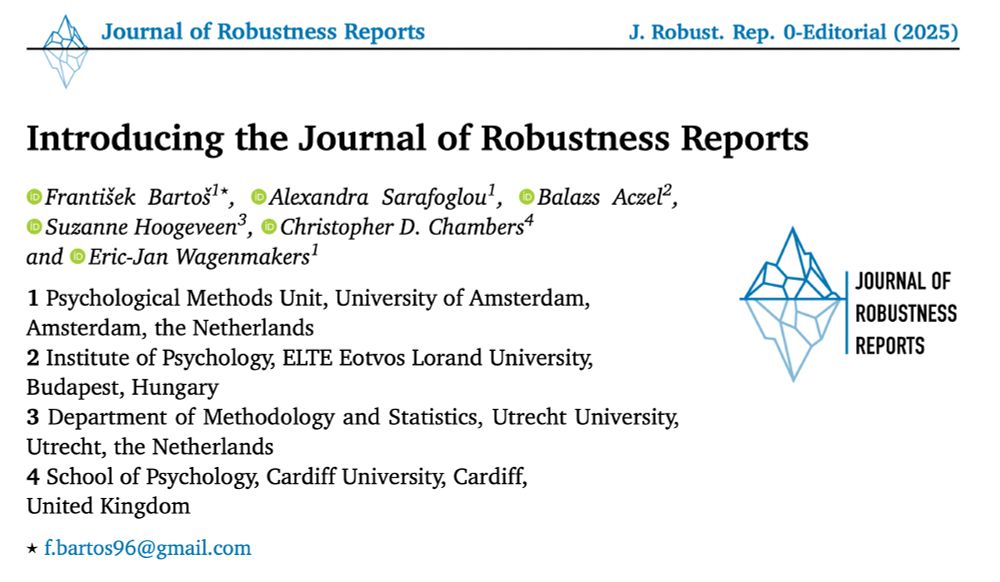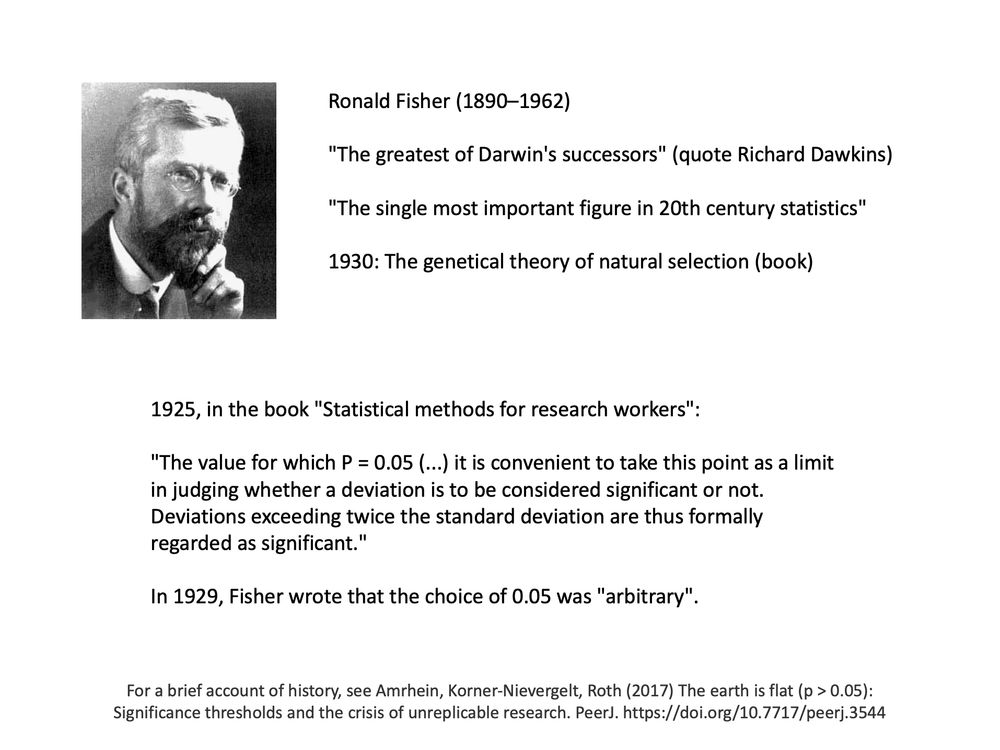ReproducibiliTea
Serving Reproducibili☕️ at 100+ locations: Blends include transparency, openess and robustness + spoonfuls of science. Find out more on our website and checkout our podcast.
reproducibilitea.org
- Super excited to launch ReproducibiliTea’s newest reading list: “Open Research… in the Arts?” 🔬🎭🎨🎷📐 Probe the boundaries of Open Research expectations across disciplines, explore data outside the sciences, discuss challenges facing empirical and practice-based arts, and more ⭐️ Get stuck in! ☕️🫖
- Introducing ReproducibiliTea’s newest reading list: “Open Research… in the Arts?” curated by Hazel Aileen van der Walle @hazelvanderwalle.bsky.social Check it out at rpt-rl.netlify.app and broaden your view of Open Research.
- [Not loaded yet]
- [Not loaded yet]
- [Not loaded yet]
- [Not loaded yet]
- [Not loaded yet]
- We're very pleased to announce that the theme for this year's NORRN annual meeting will be "Responsible Open Science". This event will be held in person (Oslo, Bergen and Tromsø) and online on June 16th. Register for the event here: nettskjema.no/a/514733#/pa...
- It is the week of the Replication Research Symposium! We have over 60 registrations (offline + online), about 20 contributions, and wonderful things to announce! Check out our book of abstracts or register for online participation: indico.uni-muenster.de/event/3176/
- [Not loaded yet]
- [Not loaded yet]
- TODAY (Monday) 16-17:30 CEST #ReproducibiliTea in the HumaniTeas goes qualitative! ✨ Nathan Dykes (Department of #DigitalHumanities and Social Studies @FAU) will give a 20-min input talk entitled "Beyond the gold standard: Transparency in qualitative corpus […] [Original post on fediscience.org]
- [Not loaded yet]
- [Not loaded yet]
- [Not loaded yet]
- This looks really slick! Looking forward to seeing more units being build – can imagine this being embedded in many curriculums and being a very useful resource for research trainees and early-career researchers.
- In this latest podcast episode, Sarah and I chat about critical theory and positivism, using that framework to contextualise how qualitative psychology has been largely impacted but ignored by the open scholarship movement. We hope this sparks some reflection on what research rigour is across psych!
- 🔵 New episode of the ReproducibiliTea Podcast 🔵 William Ngiam @willngiam.bsky.social and Sarah Sauvé talk about critical theory and positivism: soundcloud.com/reproducibil...
- [Not loaded yet]
- Here's a recent chat from NORRN steering committee members @agataboch.bsky.social and @dsquintana.bsky.social about common misconceptions and challenges surrounding the implementation of open research practices, with a focus on psychology research youtu.be/Eyl29VBdHjA
- Science has a reproducibility problem. In this episode, we talk with @reproducibilitea.org members from Finland about grassroots efforts to fix research culture from the ground up. #OpenScience Find the full episode on SoundCloud, YouTube, Apple Podcasts, or wherever you get your podcasts!
- Join us on May 20, 9 am (PT) for the 6th Reproducibility Rounds - 𝐄𝐬𝐭𝐢𝐦𝐚𝐭𝐢𝐧𝐠 𝐑𝐞𝐩𝐥𝐢𝐜𝐚𝐛𝐢𝐥𝐢𝐭𝐲 𝐨𝐟 𝐋𝐚𝐛 𝐁𝐢𝐨𝐥𝐨𝐠𝐲 𝐑𝐞𝐬𝐞𝐚𝐫𝐜𝐡 𝐚𝐭 𝐚 𝐍𝐚𝐭𝐢𝐨𝐧𝐚𝐥 𝐋𝐞𝐯𝐞𝐥: 𝐑𝐞𝐬𝐮𝐥𝐭𝐬 𝐚𝐧𝐝 𝐋𝐞𝐬𝐬𝐨𝐧𝐬 𝐟𝐫𝐨𝐦 𝐭𝐡𝐞 𝐁𝐫𝐚𝐳𝐢𝐥𝐢𝐚𝐧 𝐑𝐞𝐩𝐫𝐨𝐝𝐮𝐜𝐢𝐛𝐢𝐥𝐢𝐭𝐲 𝐈𝐧𝐢𝐭𝐢𝐚𝐭𝐢𝐯𝐞. Registration at: stanford.zoom.us/meeting/regi...
- Excited to announce a webinar hosted by R4E @repro4everyone.bsky.social on data visualization with Helena Jambor (@helenajambor.bsky.social) !!! Details here: www.repro4everyone.org/blog/r4e-hos...
- Join us next Friday for our next #ReproducibiliTea session either in Bielefeld or via Zoom ☕😊
- 🔵Bielefeld (BURST) Friday, 9 May, 12:00 CEST Topic: Marchi & Taylor (2009). If on a winter’s night two researchers…: A challenge to assumptions of soundness of interpretation. Critical Approaches to Discourse Analysis across Disciplines, 3(1), 1-20. core.ac.uk/download/pdf...
- [Not loaded yet]
- I created this reading list on theory in psychology a while back, so it probably needs an update! Would love any recommendations for papers to include – maybe I can turn this into a syllabus of sorts. PDF of this reading list here: williamngiam.github.io/reading_list...
- Check out our Reading List on Theory in Psychology! 👉 rpt-rl.netlify.app Curated by: William Ngiam @willngiam.bsky.social
- Our journal club has been featured by @reproducibilitea.org! Find out what we all about by joining our next club. Or look into what we have discussed in the past in our past clubs: osf.io/zjbkt/ #OpenScience
- [Not loaded yet]
- [Not loaded yet]
- [Not loaded yet]
- We are live! Introducing the "Journal of Robustness Reports" – a Diamond Open-Access journal dedicated to publishing short reanalyses of empirical findings. Check out our website and blog post about the journal: 🌐 scipost.org/JRobustRep 📄 www.bayesianspectacles.org/introducing-...
- Early career researchers have the potential to act as agents of change in embedding open practices. But is it fair to expect early career colleagues to carry the burden of transforming how we do research? Coming up this month - our Open Research Conversation on ECRs & open research: All welcome!
- [Not loaded yet]
- [Not loaded yet]
- [Not loaded yet]
- [Not loaded yet]
- [Not loaded yet]
- NEW PAPER: Updated CONSORT-2025 for reporting randomised trials is now available in the @bmj.com @jama.com , @thelancet.bsky.social, @plos.org and @naturemedicine.bsky.social —> www.bmj.com/content/389/... #openscience #transparency #medsky #statssky #episky
- [Not loaded yet]
- [Not loaded yet]
- [Not loaded yet]
- [Not loaded yet]
- [Not loaded yet]
- [Not loaded yet]
- [Not loaded yet]
- [Not loaded yet]
- Congratulations to Florence Débarre @flodebarre.bsky.social for winning the March PubPeer Monthly Prize for her outstanding comment on a 2025 arXiv preprint! 🏆 pubpeer.com/publications... Insightful contributions like this help strengthen the scientific record—thank you!
- [Not loaded yet]
- [Not loaded yet]
- [Not loaded yet]
- [Not loaded yet]
- [Not loaded yet]
- [Not loaded yet]
- Happy birthday, p = 0.05! I had a short introductory lecture in statistics for biologists this morning, and then it dawned on me that p = 0.05 is celebrating its hundredth birthday this year.
